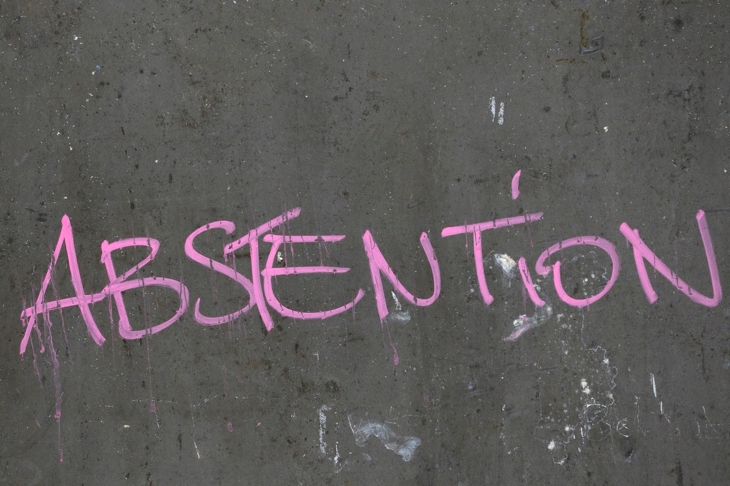This weekend, France will again go to the polls in the final round of voting. The choice is between Marine Le Pen and Emmanuel Macron. And while the polls look very much in Macron’s favour, many fear that Le Pen could still be in with a chance. Not so much because of the votes she will receive, but rather because of the votes Macron may not.
65 percent of disappointed Mélenchon voters are claiming they will abstain, according to a recent survey. This reflects a rising trend in France, called ‘l’abstention’ – the refusal to vote. For many French voters, both options they are presented with are equally unacceptable: having to choose between Le Pen’s openly racist politics and Macron’s glowing neo-liberal vision is pointless. Twitter is full of declarations of ‘l’abstention’ right now. ‘Capitalism or Fascism? Why should I have to chose between two regimes of terror?#SansMoiLe7Mai’ wrote one disappointed voter.
The hashtag, which means ‘without me on May 7th’ has been trending on social media since the first round last week. It was started by Jean-Luc Mélenchon, the far-left candidate who had risen sharply in the weeks prior to the election, but then came fourth after Macron, Le Pen, and Fillon. Disappointed by the inconclusive result, a disgruntled Mélenchon first refused to make a recommendation to vote for Macron (or rather, as Fillon did, a call to ‘vote against Le Pen’), and in the end posted a video on his YouTube channel that, while making it clear he would never vote for Le Pen, said voting for Macron was not an option either. Since his defeat, the hashtag #SansMoiLe7Mai began being used by, against all odds, hardcore left-wing voters, seemingly unbothered that it could help the Front National progress.
Abstention could still become a serious issue for Macron. With Mélenchon’s support, he would have been almost certain to win. If a majority of Mélenchon’s voters abstain, the picture gets increasingly muddled, all the more so since right-wing candidate Nicolas Dupont-Aignan, who received over four million votes, recently announced his plan to join Marine Le Pen’s government should she be elected.
The debate has a familiar ring to it. Not so long ago, frustrated Bernie Sanders supporters were asked to pick between two candidates they disliked. Many denied giving their vote to either. They refused to participate in a game whose rules they didn’t respect – and Trump was the overall beneficiary.
Of course the situation is different in France – and in the second round, voters will be asked to vote against the person they like least. But things have changed since 2002, when Marine Le Pen’s father narrowly beat the socialist candidate Lionel Jospin, and made it into the final round of the presidential election — only to lose against Jacques Chirac in a landslide election. But the truth is, Marine Le Pen doesn’t scare French voters the way her father did. And if enough people choose not to vote for either candidate – and Le Pen’s supporters come out in full force – she could still be in with a chance.
Alice Pfeiffer is a Paris-based fashion reporter for Le Monde. She contributes to the New York Times, The Guardian, i-D and Vogue.






Comments